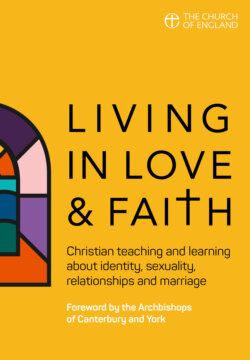Читать книгу Living in Love and Faith - Bishops of the Church of England - Страница 9
На сайте Литреса книга снята с продажи.
An invitation to examine ourselves
ОглавлениеThe sobering truth, however, is that we, the people of God, are not always good at living in love and faith or being a beacon of God’s love in the world. Many of us do not experience our own church – the Church of England – as a welcoming and safe environment where the fulness of the love of Christ is manifest. Many of us in our church communities have not always experienced the unconditional love of Christ. Indeed, some have experienced outright rejection, homophobia, transphobia or other unacceptable patterns of behaviour. Some have experienced hostility, scorn and demeaning accusations because of their convictions. Some have been subjected to sexual abuse.
As we gather to sit and learn together, we need to do our part in creating safe spaces where we can relate honestly, graciously and lovingly to one another. This will involve admitting and addressing the realities of our past failures if we are to hear God in and through our study and prayer. It will involve repenting of the ways in which our attitudes and behaviours cause these sins, rooted as they are in fear.
That is why the House of Bishops commended the ‘Pastoral Principles for Living Well Together’.2 These principles help us to examine ourselves as we use this book and its accompanying resources in ways that build up our common life and help us to discern together ‘what the Spirit is saying to the churches’ (Revelation 2.11,17,29; 3.6,13,22). The Living in Love and Faith Course that accompanies this book provides more detail about how we can put these principles into practice. This is available at www.churchofengland.org/LLF.
They will help us
…to address ignorance
by learning together about identity, sexuality, relationships and marriage in the light of our call to be faithful to both Scripture and the Church’s tradition;
by learning together with people who have different perspectives and lived experiences in relation to identity, sexuality, relationships and marriage.
…to acknowledge prejudice
by welcoming people as they are, loving them unconditionally and seeking to see Christ in them;
by reflecting deeply on our attitudes and behaviour in order to nurture understanding and respect between people who disagree.
…to admit hypocrisy
by not condemning certain behaviours and attitudes while turning a blind eye to others, remembering that we are all weak, fallible, broken and equally in need of God’s grace;
by learning from one another about the challenge to holy living and the wideness of God’s mercy as the Spirit moves within, among and between us.
…to cast out fear
by consciously demonstrating and living out what it means for perfect love to cast out fear even in situations of disagreement;
by modelling openness and vulnerability as each of us wrestles prayerfully with the costliness of Christian discipleship.
…to speak into silence
by remembering that we are the Body of Christ, called to relate deeply and openly with one another, sharing what is on our hearts as well as in our minds;
by practising deep listening, without a hidden agenda, that encourages conversations about questions of human identity, sexuality, relationships and marriage.
…to pay attention to power
by being alert to attempts to control others, remembering that God’s Spirit alone can bring transformation into our lives and the lives of others;
by following Christ’s example of service and compassion as we accompany one another in following the way of the cross.
